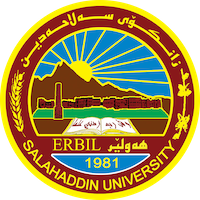Quality Assurance (QA)
One of the most important strategic plans of the Ministry of Higher Education and Scientific Research (MHE) is the implementation of Teaching Quality Assurance (TQA) in the universities and Institutes of the Kurdistan region. This process is new to our understanding of higher education in the Kurdistan region.
Our universities consist of a community of students, scholars and staff who hopefully will all be committed to bringing out the best in our university learning communities. Our Quality Assurance agenda is driven by people who are knowledgeable and active in teaching, research and administration.
The TQA programme is concerned with accurate reporting, monitoring the quality of our teaching and learning processes, auditing of our record-keeping processes, and academically sound decision-making. The TQA program may concern the actual content of the curriculum of our teaching or the actual teaching methods by which the curriculum is taught. The program is intended to ensure that our teaching has an appropriate framework within which all policy, administrative and technical as well as practical issues are brought to the highest standards.
Our mission is to ensure that everyone attains full confidence in the university’s academic standards and the quality assurance system that guarantees them. Our aim is to provide an environment that is optimal for teaching, learning and research. Such an environment will motivate students to study, innovation and originality in thought processes and result in outcomes comparable to international standards. The procedures and processes involved in TQA are compatible with the quality assurance policies of the colleges of a number of British and American universities. Our policies will support students with disabilities as well.
Committees and sub-committees within our universities have been formed to carry out the day-to-day work and are responsible for implementing the structure and coherence of TQA and its delivery.
The leaders of each committee will submit a brief report in September on how the courses were run during the previous year. These reports will be drafted and submitted to a higher committee, and then it is the responsibility of university’s director of TQA to extract any relevant information from these reports and bring them to the attention of the higher committee as appropriate.
Students can provide feedback on their courses and subjects using the evaluative form. Responses will be anonymous and stored by the coordinators. These forms will be seen by the course lecturers and the external assessor as required.
At the start of a course, students are provided with information covering the following points:
An overview of the aims and objectives of the course;
Prerequisites;
A condensed syllabus containing learning outcomes;
Expected workload, including lectures and practical information;
Timetable in as much detail as possible, including first week arrangements, lectures and practical deadlines;
Details of the Quality Assurance mechanisms as seen by the students (e.g. staff committees, questionnaires).
The role of Dean and Head of Department is vital during the implementation of TQA. They will consider external examiners’ reports, monitor student progression, approve the appointment of external examiners, oversee the development and management of quality assurance procedures, and overview external examiners’ annual reports.
